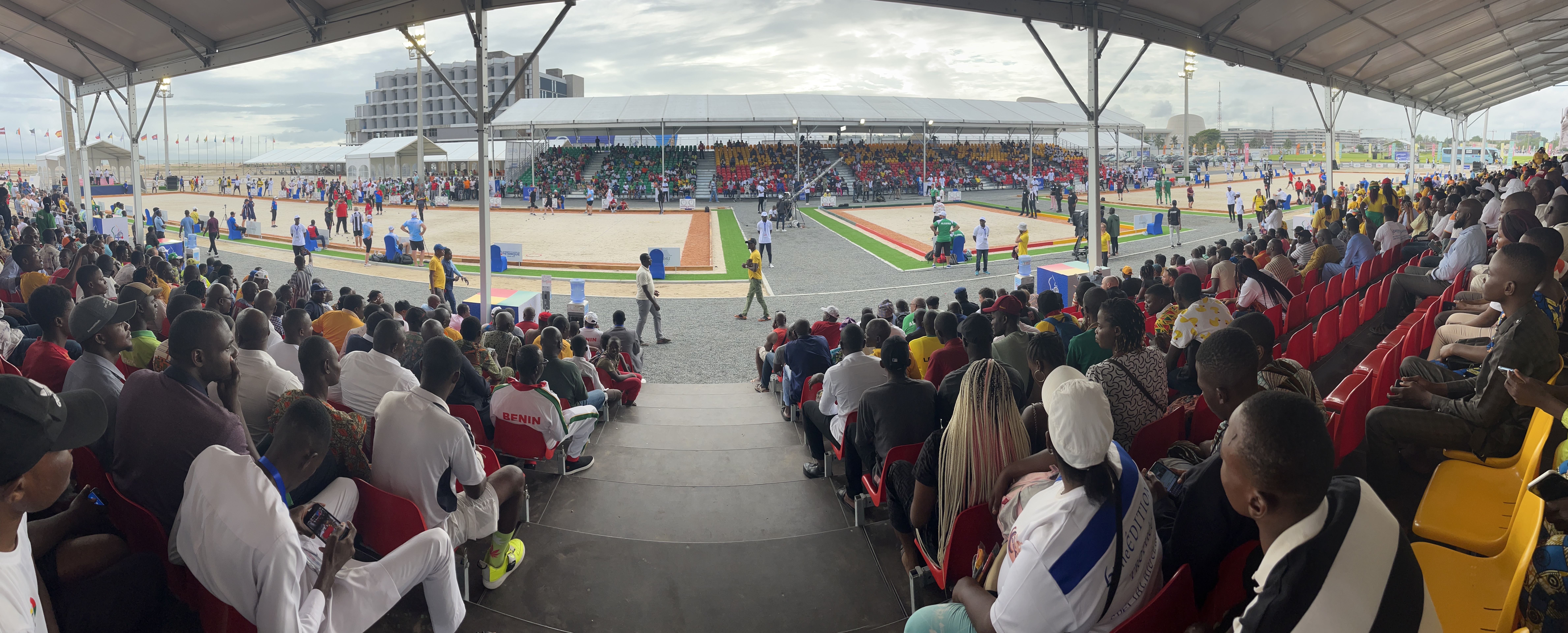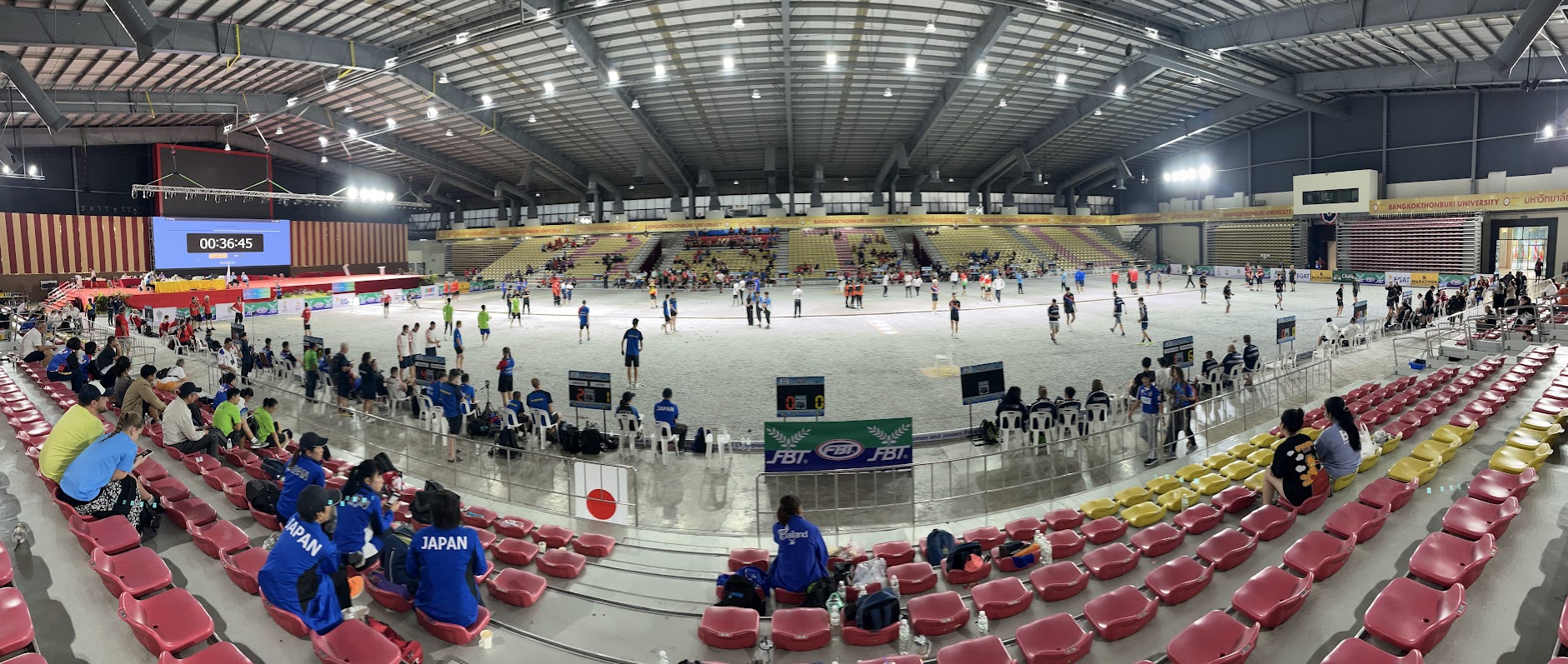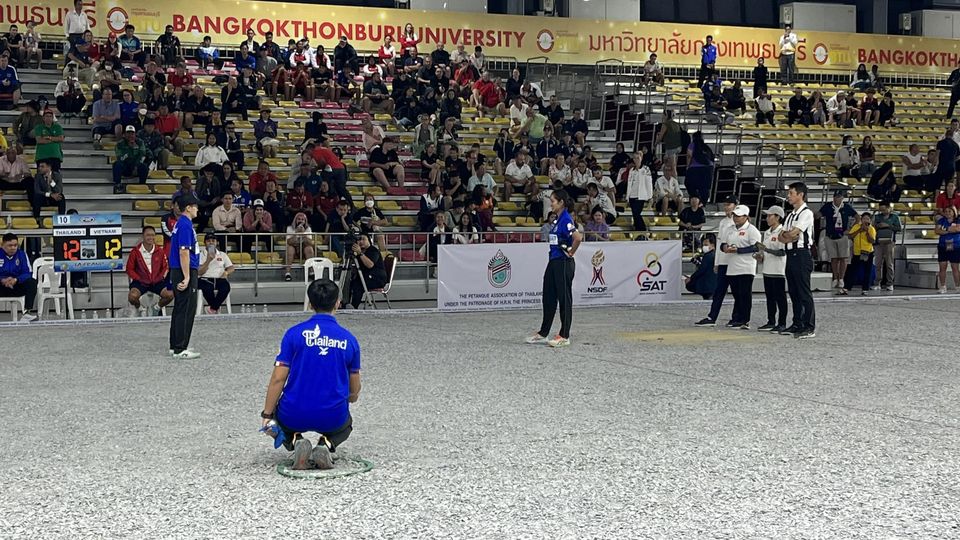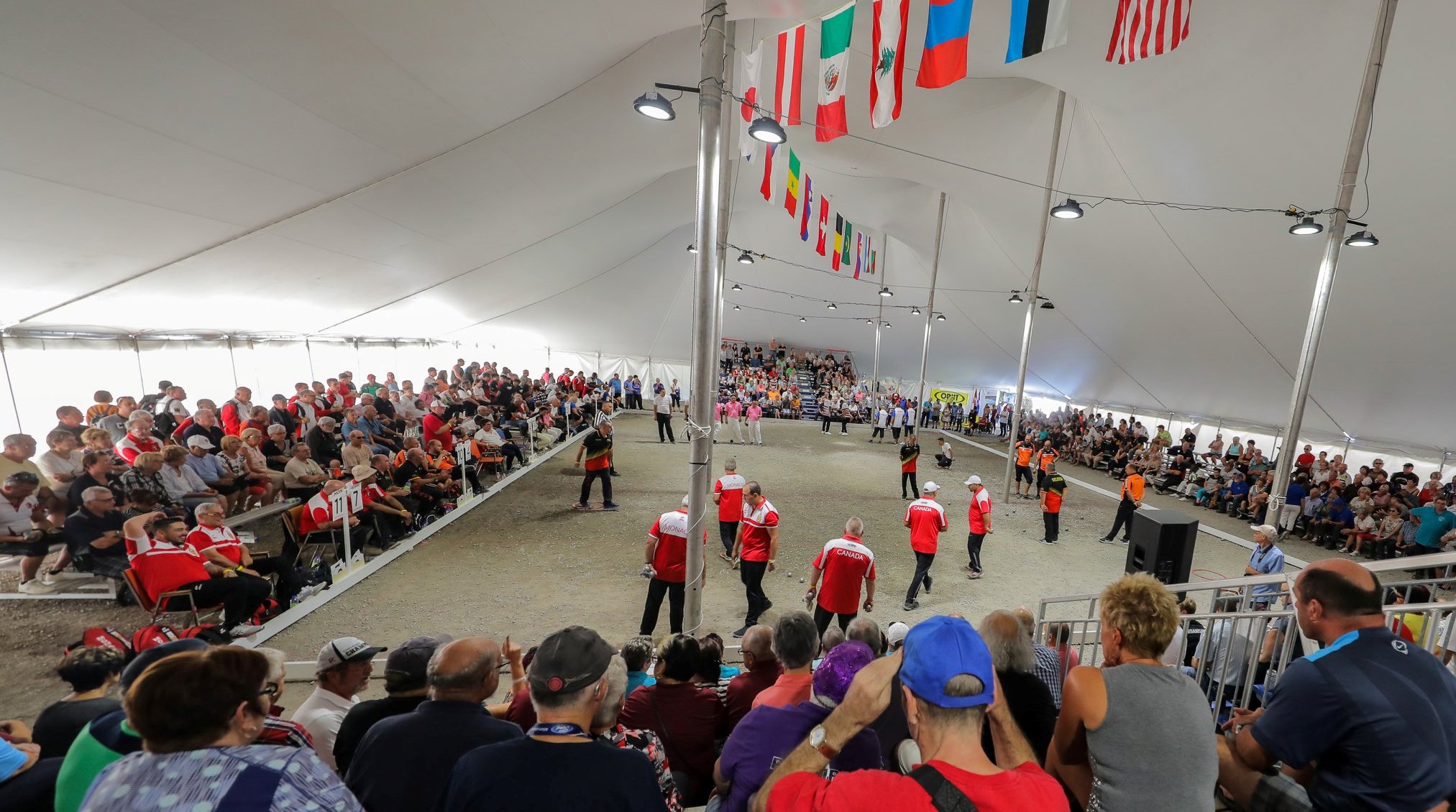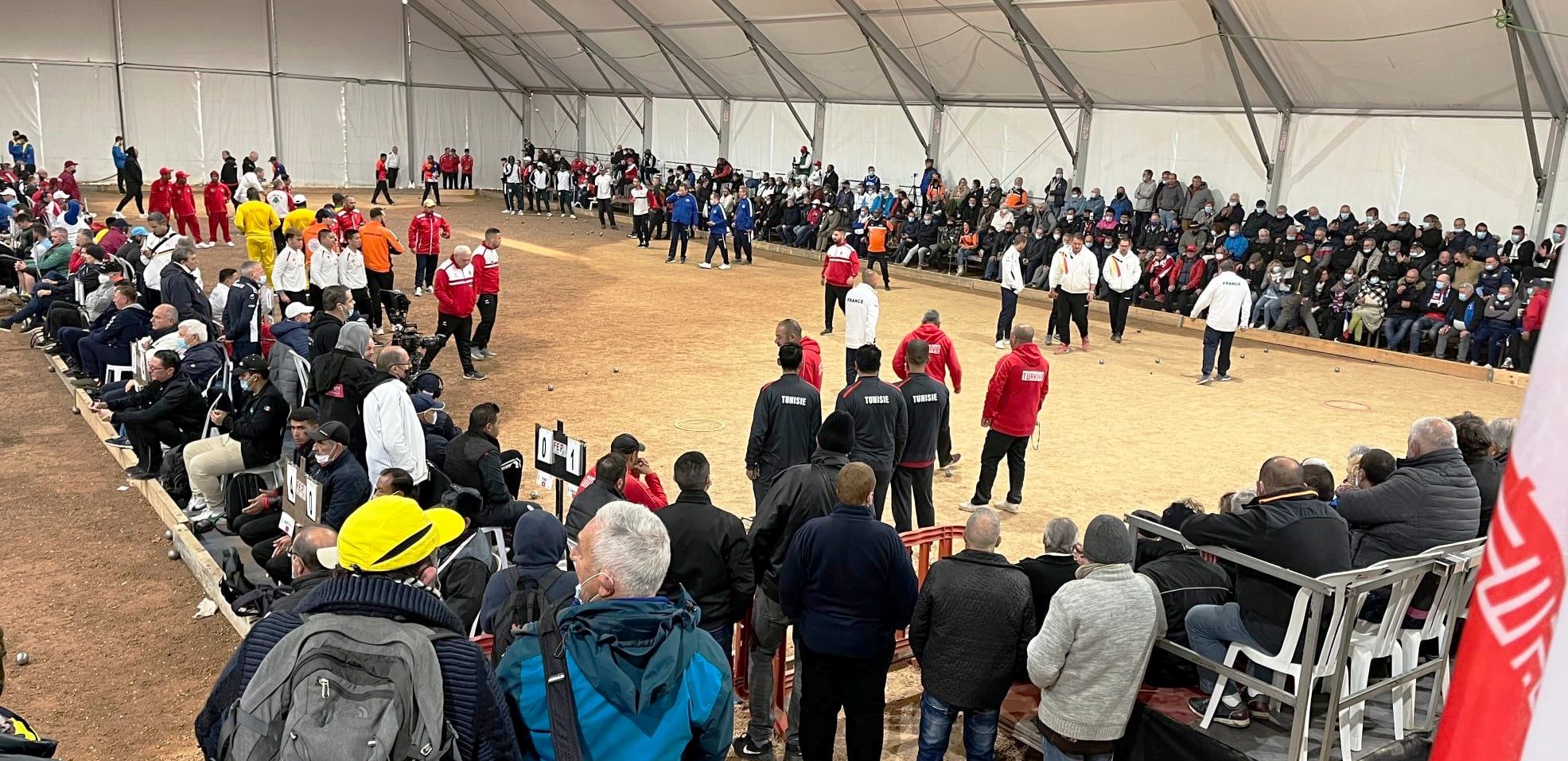 In view of the repeated appearance of "application measures" in our playing rules which have often constituted genuine rule changes - such as the one relating to the position of the jack, for which a correction had to be announced on the spot at the world championships in Santa Susanna - the FIPJP International Umpire and Rules Commission referred the matter to the Executive Committee FIPJP, which examined the issue at its meeting in Bangkok on 23th of November.
In view of the repeated appearance of "application measures" in our playing rules which have often constituted genuine rule changes - such as the one relating to the position of the jack, for which a correction had to be announced on the spot at the world championships in Santa Susanna - the FIPJP International Umpire and Rules Commission referred the matter to the Executive Committee FIPJP, which examined the issue at its meeting in Bangkok on 23th of November.First of all, two reminders:
- No “interpretation” of the rules of the game may have the effect of modifying their application.
- Any changes to the rules of the game are only made every four years, so as not to unnecessarily upset the players with incessant and not necessarily relevant changes. If the International Umpire Commission deems it necessary, the proposals will be examined by the Executive Committee for application on January 1st, 2025...
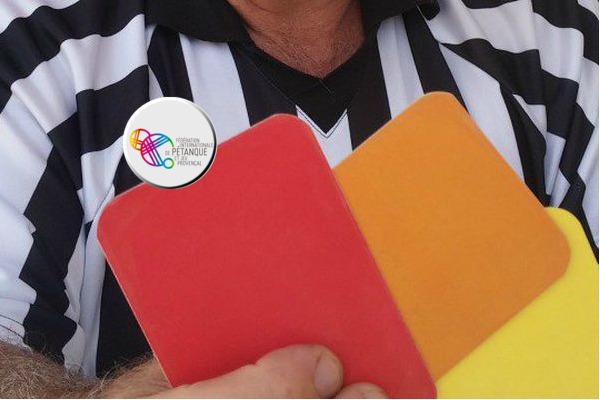
It is therefore recalled that:
A) No article of the rules allows a collective orange card to be issued. On the contrary, article 35 clearly states that this collective nature can only concern the yellow card:
However, a yellow card for exceeding the time limit is given to all the players on the team at fault. If one of these players already has a yellow card, one boule will be removed from the current lead or from the next lead if there is no ball left to play.
So NO orange cards, and even less red cards, collectively! The beginning of paragraph 1) of article 35 specifies that, with the exception of the collective yellow card for exceeding the time limit, a card is presented to the "player in fault" - in the singular - which will therefore apply in the event of a repeat offence.
B) For the penalty for marking the circles, boules or jacks, the lack of marking is not directly liable to the penalties provided for in article 35. This is not specified in the corresponding texts.
Moreover, the rules themselves admit that it is possible to play without having marked the jack or the boules. For example, in articles 15 and 20, it is specified that no complaint will be admitted for unmarked goals or boules, which clearly shows that it is possible.
This is also clear from the possibilities offered in the case of a struck boule or jack, since it is clearly stated that some of these are only applicable if the objects have been marked, without adding that those who have not done so, should be penalised.
This means the lack to mark a jack, boule or circle is not directly punishable by the presentation of a card. The only offence that can be penalised is a repeated failure to comply with instructions given directly by the umpire and, again, in accordance with the instructions given during our training sessions on how to apply our texts, remembering that the umpire is above all a teacher and instructor and not a narrow-minded punisher. He must adapt his behaviour and some of his decisions to suit those he is addressing and the circumstances.
C) Similarly, the invention of a distinction between “behavioural” yellow cards and “rules” yellow cards is not based on anything and is even contrary to FIPJP texts, especially as it would lead to different consequences depending on the case.
In particular, there is no provision that allows a card to remain in force throughout a competition for the same player. Such a decision should be rescinded immediately, as there is no justification for it in our texts. The only sanction of this kind is exclusion from a competition as a whole for a player with a blood alcohol level in excess of the tolerance of 0.50g/liter of blood.
D) Miscellaneous:
1) A controversy has arisen over the meaning of the adverb "immediately" in the last paragraph of article 7, with some umpires taking the view that this obliges the team concerned to put the jack onto the ground immediately, which is contrary to what is written two paragraphs above where it states that this team "may previously, in turn, move the circle back under the conditions provided for in the preceding paragraph if an initial move back by the opposing team would not have allowed a throw at the maximum distance."
Until this erroneous wording is revised or removed, umpires will be asked to use logic (which would allow the entire text to be applied) and to give a set time, for example 30 seconds.
2) Claudio Mamino wishs that international umpires had to wear their distinctive shirts at all competitions, in their own countries or abroad.
3) For the World Championships, the Executive Committee decided that all teams qualified for the quarter-finals and the rest of the competition would be issued with a green card, which could be used once per game by handing it to the umpire to allow two minutes for discussion between the players and the coach. The interested team will have to inform the umpire before the last boule of the current end is played.






